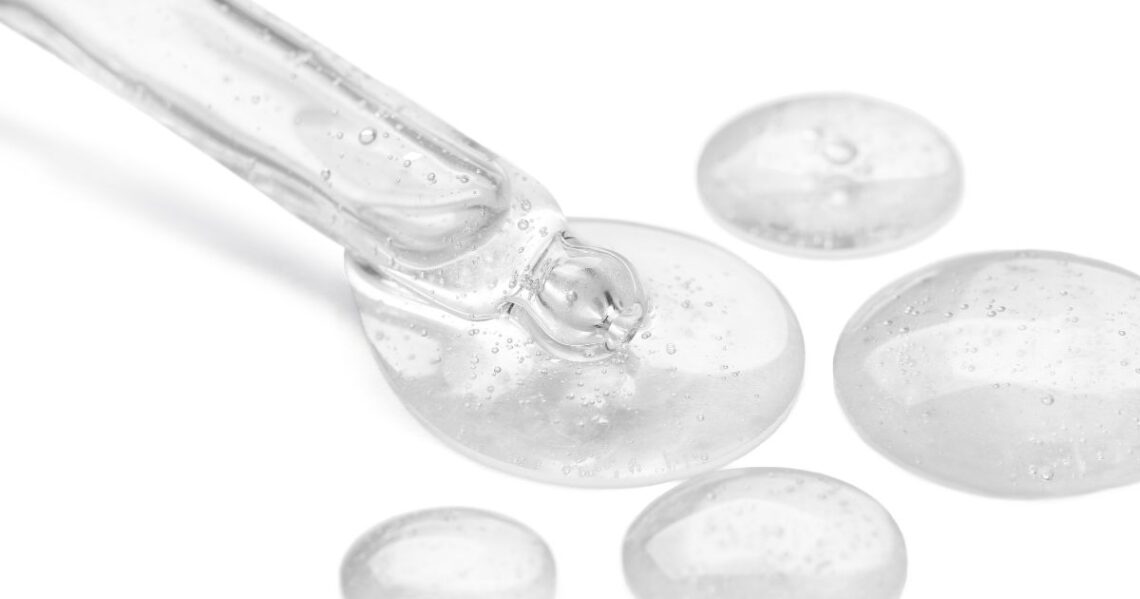Have you recently found out that you have sensitive skin and are unsure about how you can take care of it? Or maybe you have known about your skin being sensitive for awhile but are looking for new product recommendations of skincare products specifically created for your skin type? Then you have come to the perfect place.
Many people struggle with sensitive skin and as it is prone to irritation and can cause discomfort, redness, itching or a stinging sensation, it can be hard to manage. This guide includes everything you need to know about sensitive skin as well as product recommendations specifically created by dermatologist for this skintype.
Characteristics of sensitive skin
No skin is the same and not everyone will have the same issues, but here are some things to look out for to help understand if you have sensitive skin or not.
- Reactivity: your skin reacts quickly and strongly to changes in temperature, perfume or makeup.
- Fragile barrier: your skin is easily irritated and more vulnerable to allergens.
- Prone to allergies: your skin may experience allergic reactions to chemicals.
- Redness: your skin gets red after changes in temperature or intense emotions.
- Dryness: your skin is often dry, flaky or feel tight because of a lack of hydration.
How to take care of your sensitive skin
1. Keep it simple
Don’t mix and match a lot of skincare products with many different ingredients. When it comes to sensitive skin it is best to keep it simple – less is more. Get a simple cream or gel-based cleanser with ingredients that are hydrating and gentle on the skin. Avoid ingredients like sulfates, fragrances or dyes. Use the cleanser both morning and night to clean your skin and get rid of any build up during the day.
Some recommended cleanser specifically designed by dermatologist are:
CeraVe Hydrating Cleanser, Cetaphil Gentle Skin Cleanser, La Roche Posay Effaclar Purifying Foaming Gel Cleanser & DR Barbara Sturm Cleanser
2. Hydrate!
It is important that you keep hydrating your skin if it is sensitive and easily irritated. This can be done in two ways – by drinking water and applying a moisturiser. If you use a moisturiser, remember to find a formula that works for your skin. Some moisturisers are heavily infused with oils and sometimes perfumes to make your skin smell good – this is not what you want. For sensitive skin, moisturisers should not contain perfume as this can irritate the skin and it should also be oil-free, water-based and non-comedogenic. It is also recommended that you use a lighter moisturiser in the morning and a richer one at night. Some recommendations are:
Dermalogica Active Moist Hydrating Oil-free Moisturiser, CeraVe AM Facial Hydrating Moisturising Lotion With SPF 25 & CeraVe Facial Moisturising Lotion PM Ultra Lightweight
If you want to hydrate your skin even more, you can use hydrating serums such as La Roche Posay Hydraphase Intense Hydrating Serum.
3. Protect your skin from the sun!
Always wear SPF every day and especially if you plan to go outside, even if it is just for thirty minutes to run errands. Some recommended sunscreens specifically created by dermatologists for sensitive skin is La Roche Posay Anthelios XL SPF 50+ Ultra-Light Fluid & Altruist Dermatologist Sunscreen Fluid SPF.
4. Be cautious!
Next recommendation is to be cautious. Create a simple, effective skincare routine and stick to it instead of trying new products all the time. Of course, you can still try new products if you wish, but it would we wise to not change the products too often. If you try a new product, patch-test it first! Apply it to a small area and wait for 24, if you do not have a reaction the product is probably safe to use.
5. Consult a dermatologist
Finally, you can also consult a dermatologist if you are unsure about where to start and are struggling to manage your sensitive skin.
Debunking skincare myths about sensitive skin
With all the information you can find about skincare and skintypes online today on the web and social media, some myths have appeared. Here are the most common myths and the explanation to why they are wrong. Hopefully, the debunking of these skincare myths surrounding sensitive skin will clear up some confusion.
1. You should always double cleanse – wrong. Whilst this can work well for other skin types, it can strip away the necessary oils and water from the skin and compromise the natural skin barrier leaving your sensitive skin feeling tighter and causing redness and flaking.
2. Your skin is clean if it feels tight after cleansing – wrong. Your skin should not feel tight after washing, if it does then chances are you are probably using the wrong cleanser.
3. Sensitive skin is always dry – wrong. It is often dry, but it does not necessarily have to be. Which is why it is important to take care of your skin based on your own individual needs. In the end, you know your skin best, and you know what it needs.
4. You should not wear makeup if you have sensitive skin – you can if you want to. But it is advised that you stay away from heavily perfumed products and that you take proper care when you remove your makeup. Use a gentle makeup remover and a gentle cleanser, and make sure to use a moisturiser to give your skin some moisture back.
Research, research, research!
Finally, if you still feel overwhelmed about all the information provided in this article or still remain confused, there are many other articles that dives deeper into the world of skincare. We would recommend you research and read up on skincare for sensitive skin until you fully understand it. That way, it will be easier for you to get the results you want and care for your skin in the best way possible.
Some articles you can read more up on are: Why is hydration important to dry/sensitive skin?, The Ultimate Guide To Skincare For Sensitive Skin and Harpersbazaar #SkinSchool: Everything you need to know about sensitive skin.




